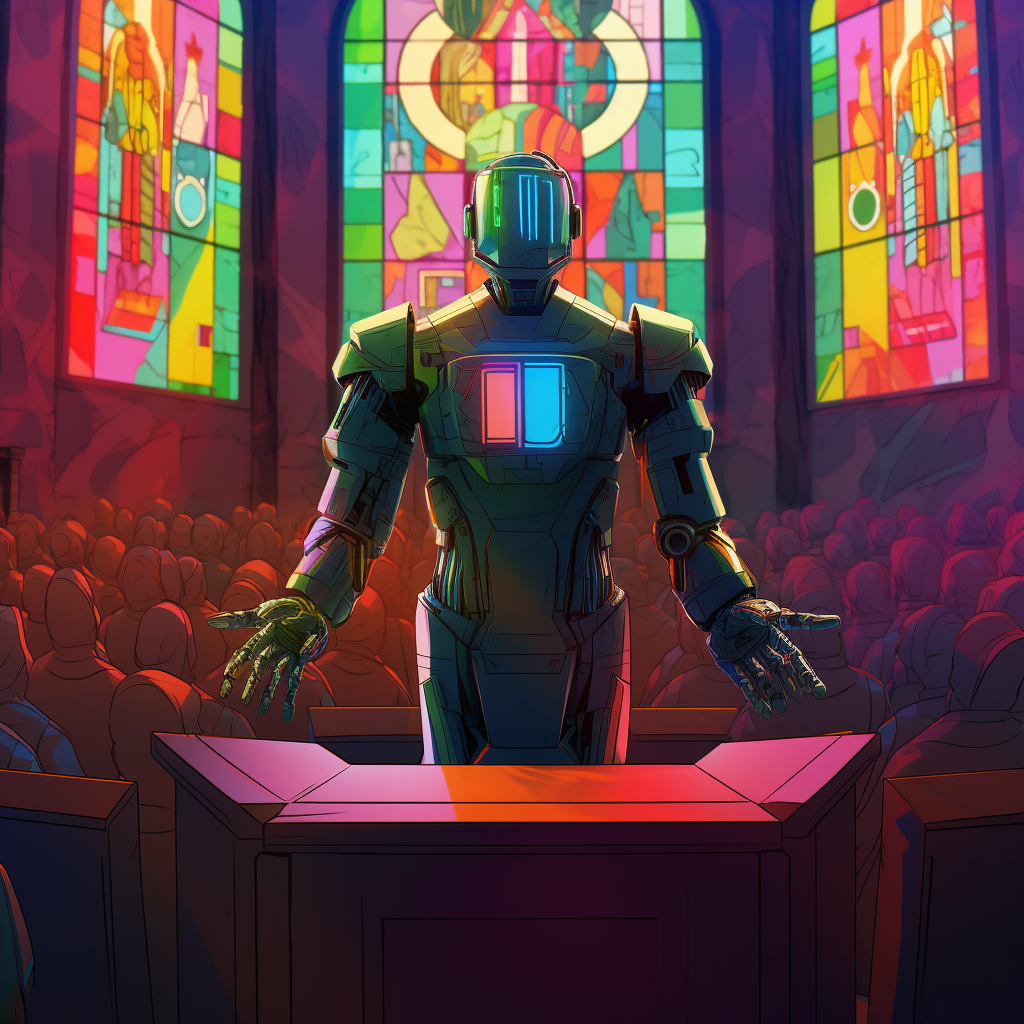June 20, 2023
ChatGPT Delivers a Powerful Sermon to Hundreds in Virtual Church
Book a Demo
In a remarkable display of technological advancement, ChatGPT, powered by OpenAI, recently took center stage and captivated the attention of hundreds of attendees in a virtual church service. This groundbreaking event has sparked a thought-provoking debate about the role of artificial intelligence (AI) in delivering sermons and engaging with religious communities.
The virtual church service, generated entirely by ChatGPT, offered an unconventional yet immersive worship experience to its participants. Congregants, from different corners of the world, connected virtually to witness the AI-powered sermon firsthand. It served as a fascinating experiment to explore the potential of AI in religious settings.
A Blend of AI and Spirituality. ChatGPT’s sermon exhibited a remarkable amalgamation of AI capabilities and religious discourse. Leveraging its advanced language processing algorithms, the AI chatbot delivered a thought-provoking message, weaving together biblical teachings, philosophical insights, and personalized anecdotes. The sermon touched upon fundamental spiritual themes, inspiring attendees to reflect on their faith and purpose.
The utilization of AI in religious practices opens up a realm of possibilities and challenges traditional notions of worship. While some view it as a tool for expanding access to spiritual content and engaging younger generations, others express concerns about the authenticity of AI-generated religious experiences. This event has sparked a dialogue about the intersection of technology and faith.
As the debate unfolds, ethical considerations take center stage. Questions arise about the responsibility of AI developers, the need for human oversight, and the preservation of religious values and traditions. Striking a balance between technological innovation and the human touch becomes essential to ensure a meaningful and authentic spiritual experience.
The successful virtual church service generated by ChatGPT paves the way for further exploration of AI’s role in religious contexts. As AI technologies continue to evolve, it is crucial to engage in discussions that shape their integration into religious practices responsibly. Finding the right balance between technology and human connection will be crucial in the ongoing development of virtual religious experiences.
The convergence of AI and religion witnessed during the virtual church service has sparked a fascinating discourse about the future of worship. While AI-powered sermons open doors to new possibilities and engagement, we must navigate the ethical and spiritual implications carefully. The collaboration between technology and faith has the potential to enhance accessibility, bridge gaps, and foster meaningful connections. As we move forward, it is crucial to strike a delicate balance that respects tradition, values human involvement, and harnesses the benefits of technological innovation.



